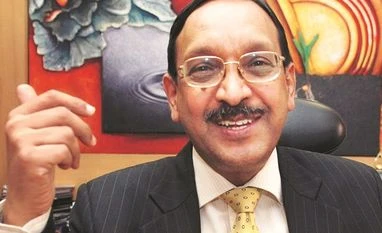Sarraf, 60, who retired as the chairman of India's most profitable company on September 30, was appointed to head the PNGRB by the Appointments Committee of the Cabinet, an official order said.
He replaces S Krishnan, who demitted office in August 2015.
More From This Section
Alongside, ACC also appointed S Rath, former director (exploration) of Oil India Ltd, as member of PNGRB. S S Chahar, former member of Cyber Appellate Tribunal, has been appointed Member (Legal), PNGRB, the order said.
All of them have been appointed for a 5-year term or till the age of 65, whichever is earlier.
PNGRB has been practically defunct for last one year in the absence of new appointments being made for retiring members.
Three members - PK Bishnoi, Kiran Kumar Jha and Subhash Chandra Batra (member-legal) - retired last year. Basudev Mohanty, the only other member on the Board, retired this year.
In July this year, S K Garg, former director (finance) of ONGC Videsh Ltd, was appointed member to PNGRB. He has been the lone member on the Board since then.
The Board consists of a Chairperson, a Member (Legal) and three other members.
With the appointments made, the board now has a full-time chairman, two members and one Member (legal).
PNGRB's job is to regulate the refining, transport and marketing of petroleum products as also to ensure enough supply across the country, protect consumer interest, foster fair trade and authorise companies that would build and operate fuel pipelines.
It decides by a majority and its decisions don't become invalid due to any vacancy, according to the PNGRB Act. But since the quorum requires three members, the board was not able to meet and decide on anything of late.
PNGRB has the power of a civil court and a bench comprising member (legal) and one or more members nominated by the chairperson which decides on disputes arising among the downstream companies or with outsiders.
)